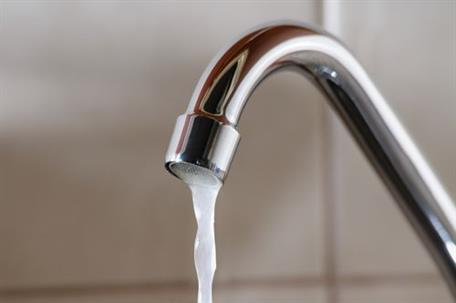Low water pressure can be pretty obnoxious to a homeowner. When you turn on the tap, you expect to have water flowing freely and quickly. Having to wait for water when filling up a glass, turning on the shower, or doing a load of laundry can be tedious and waste a ton of time. But what you may not know is that low water pressure is actually an indication of several potential plumbing problems. In fact, abnormal water pressure is one of the most common symptoms of a wide range of plumbing issues.
What Causes Low Water Pressure
Ideally, you should have a professional plumber from Mainline Plumbing determine the exact cause of your low water pressure—they’ll be able to get a much clearer and more accurate picture. However, our experts will explain a few causes of reduced water pressure to help you better understand what may be going on in your pipes.
Faulty Pressure Regulator
Whenever a new neighborhood or office park or any other development is constructed, new water lines are laid in to serve the structure. When that’s the case, your water company needs to increase the pressure in order to serve the area, especially if it’s quite a distance away from the water source. To compensate for this pressure, buildings have pressure regulators installed over their main water lines.
- Pressure regulators are designed to withstand the ever-changing pressure in your water supply, and instead, only allow the water into your home at a consistent pressure level that you (or your plumber) sets it to.
- Pressure regulators can last a while, but after several years they can wear out and do eventually fail.
- It’s strongly advised you have your pressure regulator replaced every eight to ten years to ensure it stays in good condition.
You may not notice your water pressure dropping, as it will happen gradually, but eventually, you’ll be left with water pressure that’s far below what you’re used to, and you’ll be wondering what happened.
Valve Not Fully Opened
Your home is full of various valves which control and regulate water flow to different areas and different fixtures. Most of the time you don’t touch these valves, and that’s fine. However, if you are forced to use one of them, your low water pressure may be simply because you didn’t turn your valve all the way back on again. This is actually a pretty common issue with people who are forced to use their home’s emergency shut-off valve. If you were forced to use this valve recently, make sure it’s all the way open.
- If only a few fixtures are affected, see if they’re connected by a common valve.
- For example, if your hot water heater seems to be extremely slow to fill up and heat, then the valve to your water heater may be the problem.
- Make sure the valve is all the way open and you should see your hot water pressure increase significantly.
Pipe Corrosion
Do you have an older home that still has galvanized steel plumbing running through the walls or out to fixtures? If this is the case, your lower water pressure may not be the result of a fixture or valve, but the pipes themselves.
- Galvanized steel pipes corrode as water passes through them, and this corrosion leads to a buildup of residue and limescale in your pipes.
- Over time, this buildup becomes so large that it’s impossible for water to get through.
- And unlike other clogs that can be easily snaked for removal, limescale buildup is extremely difficult to get rid of. Usually, the only way to get rid of it is to replace the pipe completely or have your whole home repiped with a corrosion-resistant material.
Plumbing Leak
Finally, one of the largest and most common causes of reduced water pressure is a simple matter of the fact that the pressure is bleeding away elsewhere. How does this happen? Through a leak.
- If you notice a drop in your water pressure, the first thing you should do is start checking your home for signs of a leak, including inexplicably wet floors, wet drywall, strange puddles, and much more.
However, leaks aren’t always obvious to the naked eye, and sometimes you may need to call in a professional plumber who has the training and tools to detect a leak, even if it’s in the cement slab beneath your home.
If your water pressure is low, let our Modesto plumbers help you fix it! Call Mainline Plumbing, Inc. at (209) 560-6652 today to request a service quote.
